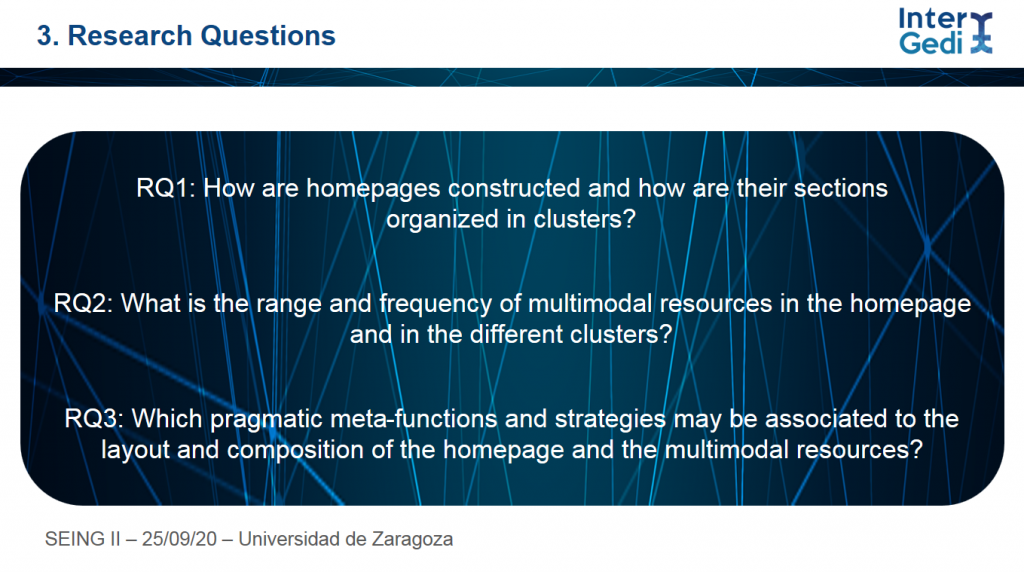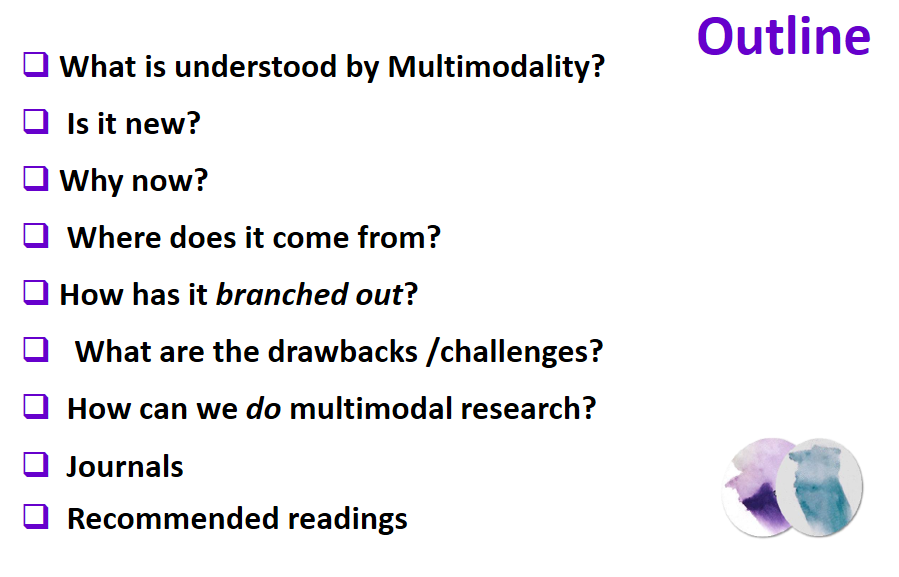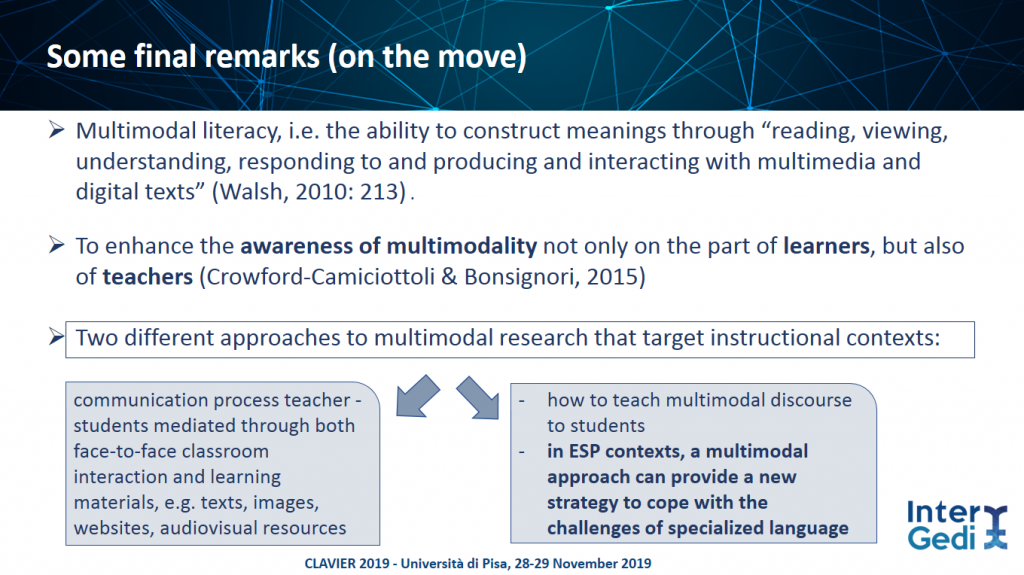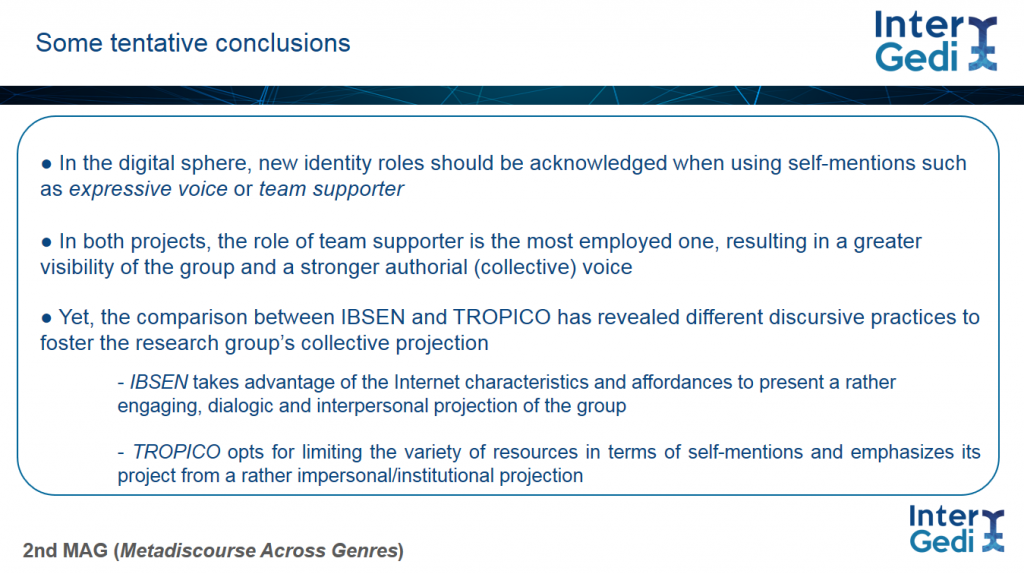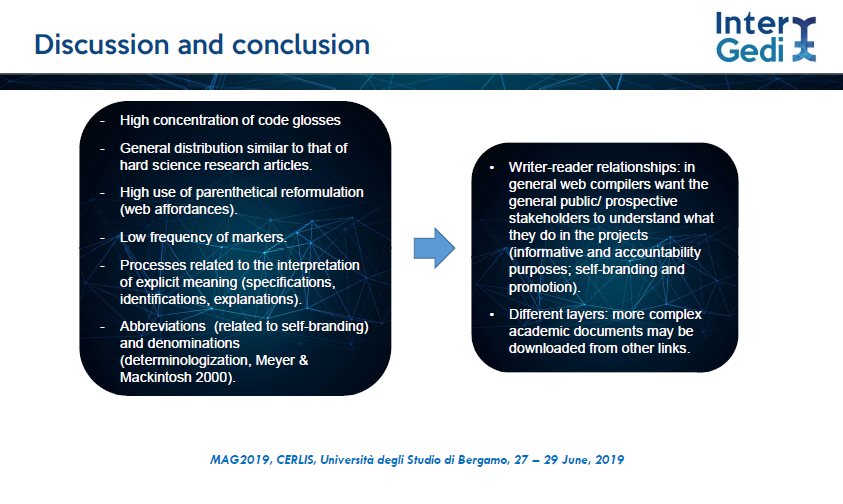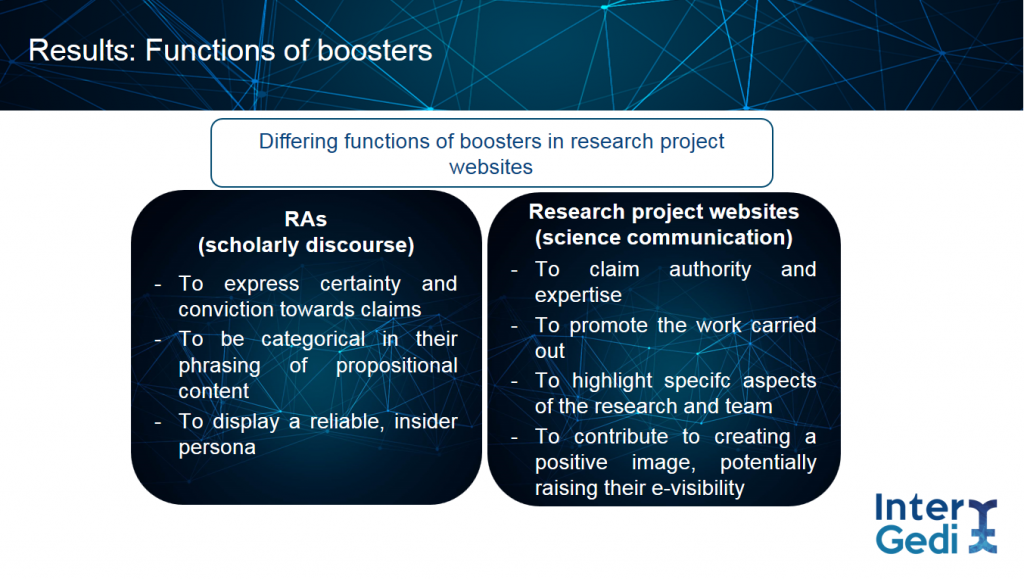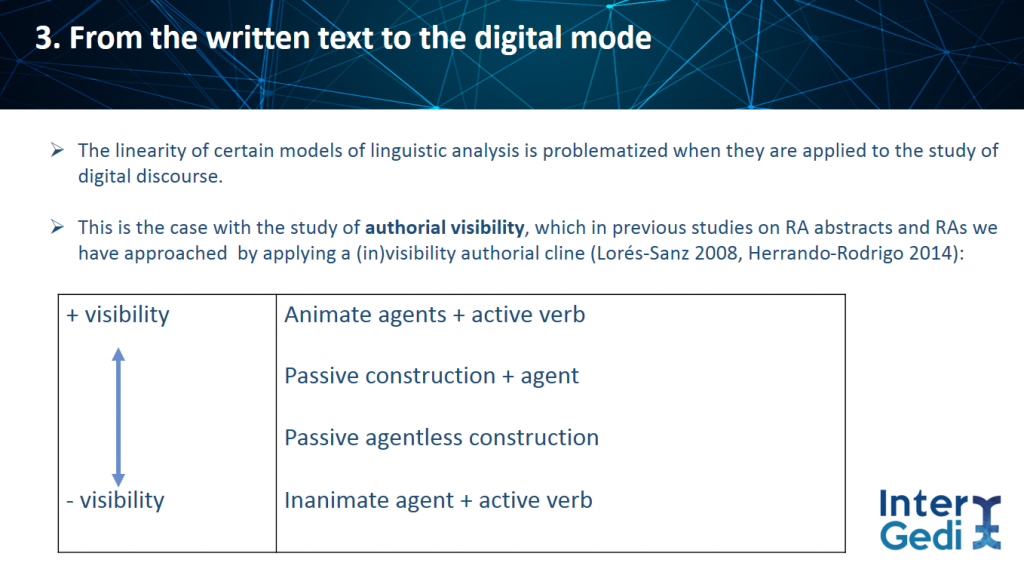Posts Tagged ‘Conference’
SEING II 2020: PhD colleague Daniel Pascual shares his latest progress in his PhD thesis
The SEING II Seminar was a very enriching event organised in the Department of English Studies at the Universidad of Zaragoza that gathered predoctoral students from a lot of national universities . This year the conference was developed in online format (inevitably) and was titled “English Studies Across Genres, Media and Modes”. As a PhD…
Read MoreDaniel Pascual explains the functioning of verbal and visual components of research project homepages
Daniel Pascual, the PhD candidate in our research group, presented at SEING II the first findings from a multimodal analysis he is undertaking to understand the pragmatic intents that come up out of the combination of verbal and visual elements when communicating online. To address his research questions, he compiled an initial sample of 10 research project…
Read MoreIsabel Corona delivers an insightful plenary talk about multimodality at SEING II
Last Friday, September 25th, the second edition of the predoctoral seminar on English Studies (SEING II) was held online, gathering around 50 speakers and attendees. The event, organised at the Department of English and German Studies at the University of Zaragoza, was an opportunity for young researchers to introduce their doctoral projects and to share…
Read MoreSEING II 2020: Isabel Corona delivers a plenary talk on the framework of multimodality: ‘Attending to the Meaningful Whole’
Our InterGedi colleague Isabel Corona participated last Friday, 25th September 2020, as a keynote speaker at the second edition of the Predoctoral Seminar on English Studies (SEING II) of the University of Zaragoza, which this year was organised online under the motto “Research in English Studies Across Genres, Media and Modes”. In her plenary talk,…
Read MoreInterGedi in CLAVIER 2019
28th-29th November 2019. At the end of November, InterGedi participated at the Clavier Conference, hosted this time in Pisa, Italy. The motto of the forum was this year ‘Knowledge Dissemination and Multimodal Literacy: Research Perspectives on ESP in a Digital Age’. We contributed the second day with a presentation carried out by Isabel Herrando-Rodrigo and…
Read MoreCLAVIER 2019: Isabel Herrando-Rodrigo and Rosa Lorés-Sanz about multimodal literacies in ESP learning and teaching
As a way to transfer research results into teaching, and within the landscape of digital communicative practices, Dr Lorés-Sanz and Dr Herrando-Rodrigo presented their pilot experience as an example of a multimodal innovative teaching practice. From their observations and the ethnographically informed research, they concluded that a multimodal approach in ESP settings, –combined with other methodologies,…
Read MoreMAG 2019: Daniel Pascual contrasts self-mentions as employed in project websites and blogs hosted within them
At the Metadiscourse Across Genres conference, Daniel Pascual has presented a case study to delve into the use and frequency of self-mentions in international scientific project websites. To establish some patterns according to the genre employed, he has chosen some projects, which also maintain and updated a blog, to carry out a contrastive study. Drawing…
Read MoreMAG 2019: Silvia Murillo shows a study on code glosess based on the EUROPROwebs corpus
Together with other members of the InterGedi research group, Silvia Murillo participated at the Metadiscourse Across Genres (MAG) International Conference of this year, under the motto Metadiscourse in Digital Communication: What has changed?. This international event was yet another opportunity to keep developing and revisiting the frameworks of metadiscourse. Murillo made in this case a…
Read MoreMAG 2019: Pilar Mur-Dueñas on the dissimilar functions of boosters in on/offline academic genres
In her presentation Dr Mur-Dueñas showed how the function performed by boosters in digital communication through project research websites differs from that of these metadiscourse features in printed academic genres. They seem to be strategically employed to claim efficiency, enhance credibility and build reputation. As such, her study showed how metadiscourse features may not only…
Read MoreMAG 2019: Rosa Lorés and Isabel Herrando-Rodrigo discuss new identity markers in digital texts
With the aim to problematize metadiscourse as a framework for the study of writer’s identity and voice, Dr Herrando-Rodrigo and Dr Lorés-Sanz investigated writers’ visibility in a corpus of websites. Their results showed that new markers had to be identified to explore how e-visibility was constructed and projected and that three types could be identified:…
Read More
